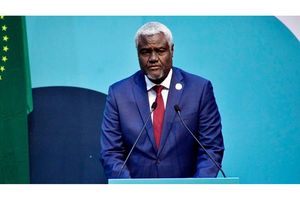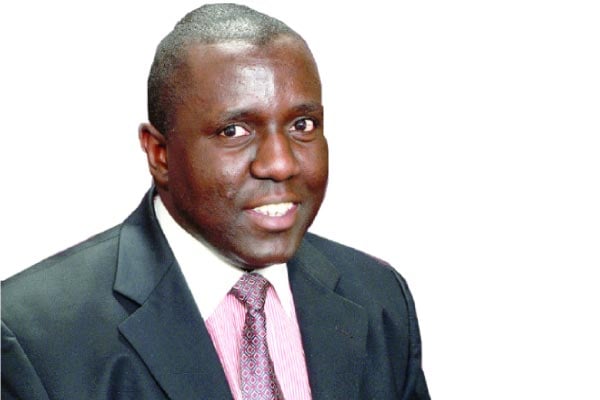
Author, Raymond Mugisha. PHOTO/COURTESY
Africa's integration agenda, aimed at promoting economic, political, and social unity, is facing a severe test. Despite the continent's collective aspirations, individual countries are faltering in their commitments, hindering progress toward a united Africa. Between outright laxity to strategic misprioritization, African countries are betraying one another, failing the continent's integration agenda and the consequences of their actions will be felt for many generations to come. Critical failures include the following:
Failure to implement AfCFTA
The African Continental Free Trade Area (AfCFTA) agreement, a landmark initiative for a single market, remains unimplemented by several countries. This delay hinders intra-African trade, stifles economic growth, and undermines integration efforts. With obvious benefits for all, we have not been able to pluck even the low hanging fruits around this initiative. By March 2024, while 45 Provisional Schedules of Tariff Concessions (PSTCs) had been submitted and verified, about six countries were yet to finalize and submit their tariff offers. This delays the complete establishment of uniform tariff regimes across participating states. Negotiations on Rules of Origin were not fully resolved for certain critical sectors like textiles, clothing, and automotives, which affects clarity on which goods qualify for preferential treatment. Frameworks for Special Economic Zones and regulatory frameworks in priority sectors were still being finalized, presenting challenges in aligning industrialization strategies across member states and ensuring harmonization of trade regulations under AfCFTA. Were a little too slow.
Neglecting infrastructure development
African countries are failing to invest in critical infrastructure, such as transportation networks, energy systems, and communication infrastructure. This neglect perpetuates connectivity challenges, limiting trade and economic integration. There is a lot on paper, and so little in practice. We remain disjointed and fragmented.
Weak regional and intra-continent trade
Intra-African trade is lowest. Regional economic communities like ECOWAS, SADC, and EAC are struggling due to countries' lack of commitment and empty protectionism of weak national markets. Weak regional trade agreements, unharmonized tariffs, and cumbersome customs procedures hinder economic integration. We actively self-sabotage, and seem unbothered about the obvious consequences, basking in self-defeat. From recent expert reports, intra-African trade as a share of global trade declined from 14.5 percent in 2021 to 13.7 percent in 2022. Over the same period, intra-African exports declined as a percentage of total exports from 18.22 per cent to 17.89 percent, and intra-African imports declined from 12.81 percent to 12.09 percent. We have work to do to transform how we do business with one another.
Policy disharmony
Countries are failing to align their policies and regulations with continental frameworks, creating a fragmented business environment. This disharmony discourages foreign investment and undermines economic integration. We have consciously chosen to continue playing small while, ironically, expecting huge dividends. We shall not see them until we wake up from this bad slumber.
Neglecting human capital
African countries are not investing sufficiently in education, vocational training, and capacity building programs, resulting in a skills deficit and limited economic growth. Our population is exploding, but the masses lack critical skills. There is massive unemployment but accompanied with huge investment in education that is not well tailored to our evolving needs. This signals large-scale wastage around investment in education, and potential crisis in the years ahead.
Insufficient political cooperation
Diplomatic tensions, conflicts, and lack of cooperation among countries are prevalent, creating a hostile environment for integration. Political instability and security concerns further exacerbate the situation. Within the region where I am penning this commentary from, guns have been sounding loud in Eastern Democratic Republic of Congo, Sudan and terrorist threats remain pronounced. We must locate collective solutions and be one another’s caring neighbor if we shall take off into the future we dream of for our children.
Urgent action is needed to address the shortcomings above and lend momentum to the continent's integration aspirations. The future of a united and prosperous Africa depends on it.
Raymond is a Chartered Risk Analyst and risk management consultant








